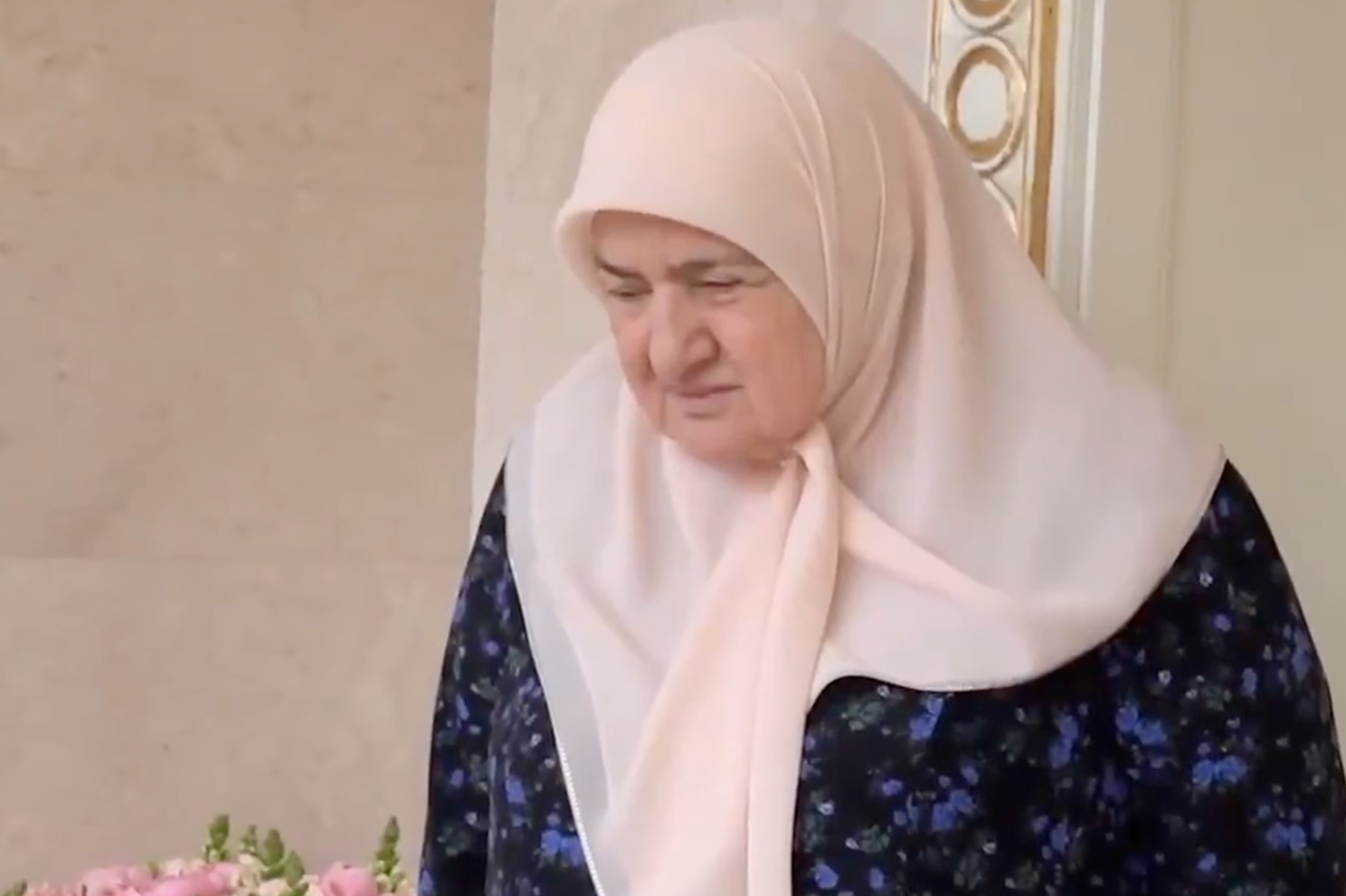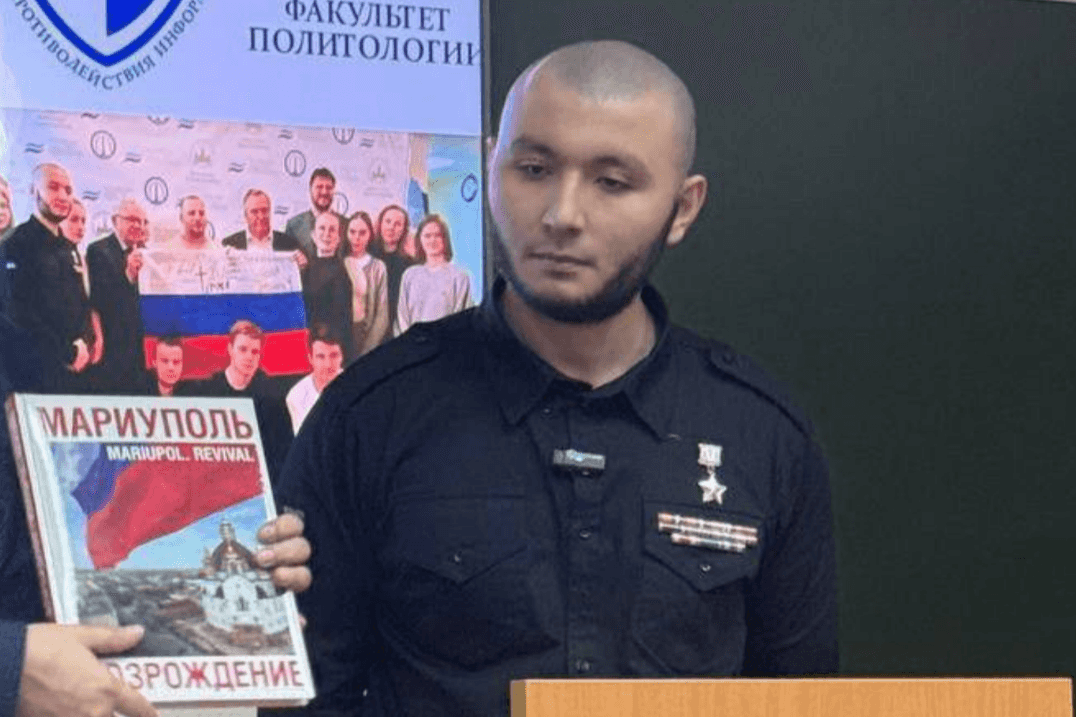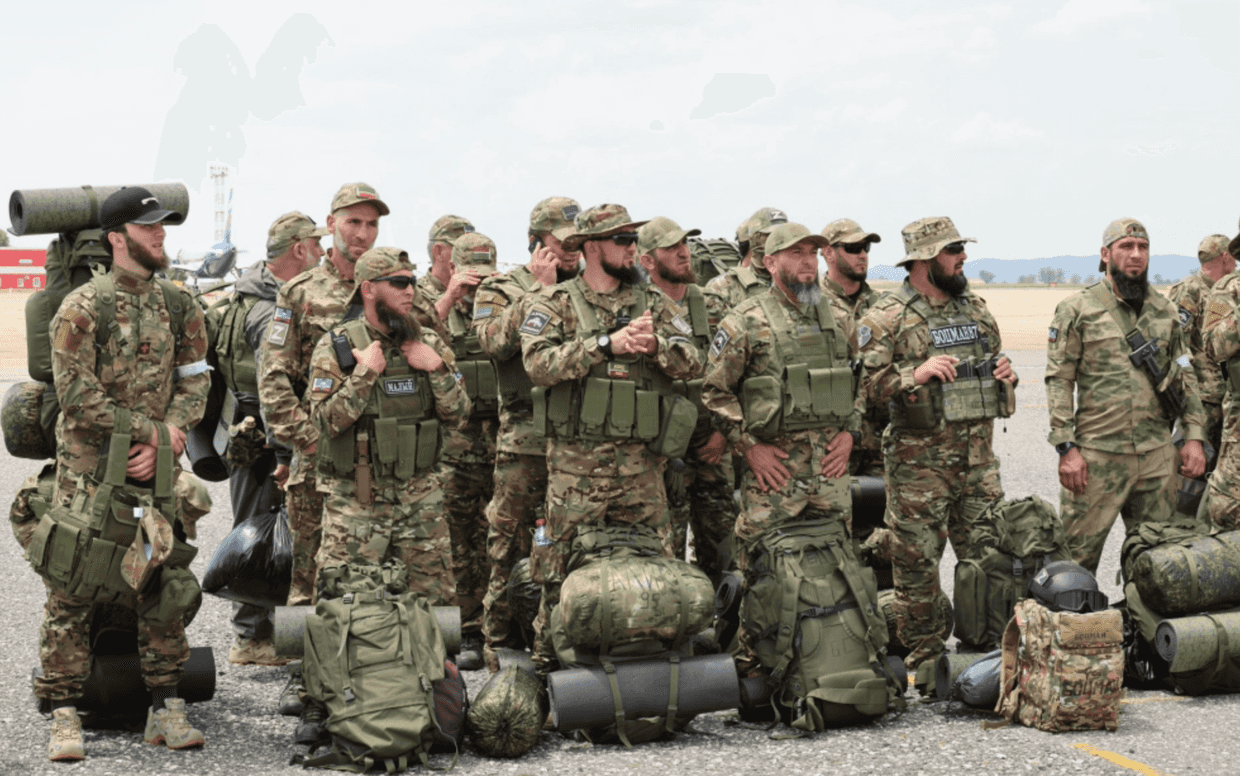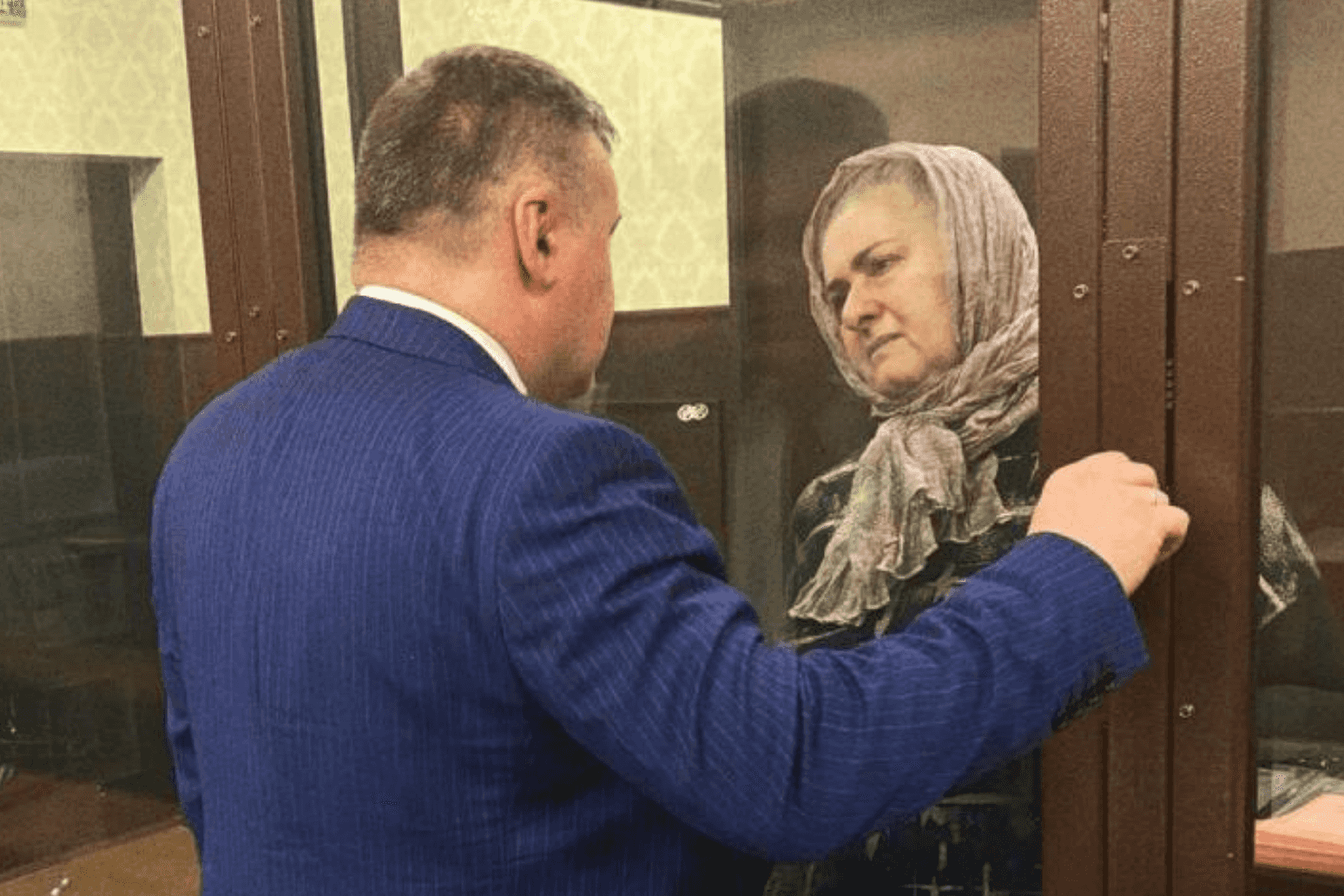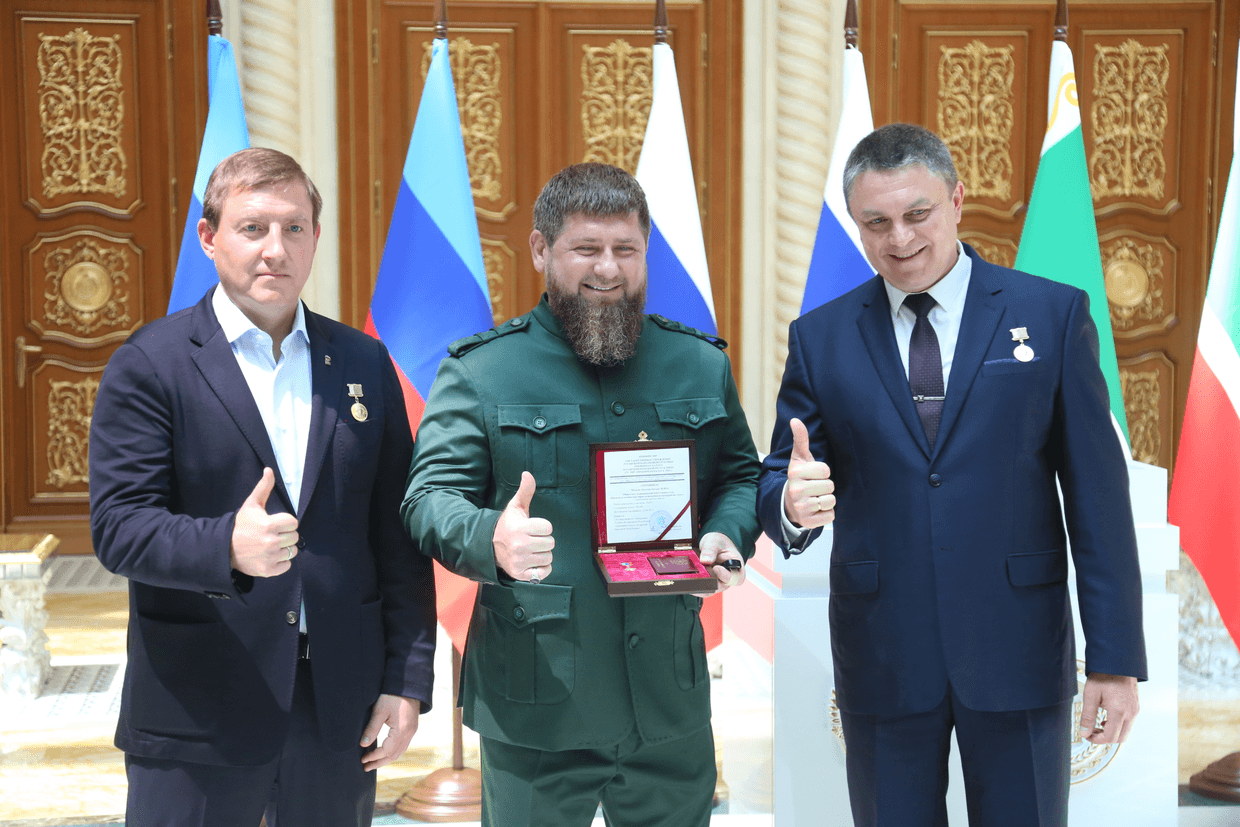
Since Russia’s full-scale invasion of Ukraine in 2022, Chechen Head Ramzan Kadyrov and 29 of his close relatives have received at least 146 different awards, medals, and titles, Russian independent media outlet Vertska reported.
Vertska based its reporting on an analysis of publications by Chechen officials and reports from regional media, covering the period from the start of the war in February 2022 up to August 2025.
According to the study, the Kadyrov family received an average of one award every eight days, while Ramzan Kadyrov personally received roughly one every forty days. In total, he was given 31 awards over 41 months, accounting for 21.2% of all awards granted to members of his family.
More than half of all awards — 82 in total — were state or departmental awards from Chechnya itself. A significant portion of these were linked to jubilee events. Between August and October 2022, members of the family received at least 11 medals issued to mark the 100th anniversary of the founding of the Chechen Republic. Other commonly awarded honours include the Kadyrov Order (nine issuances), the medal For Services to the Chechen Republic (eight), the title Hero of the Chechen Republic (eight), and the medal In Memory of Akhmat-Hadzhi Kadyrov (five).
The second largest category was departmental awards — 30 medals and badges were issued by various ministries and agencies. Most of these came from law enforcement bodies such as the National Guard, the Interior Ministry, and the Federal Penitentiary Service.
The Kadyrov family also received 21 awards from organisations and institutions, including the Order For Services to Dentistry from the Russian Dental Association and gold and silver medals For Services in Improving the Safety of Nuclear Power Plants from Rosatom, Russia’s state nuclear energy corporation.
In addition, 11 awards were given by Russian-installed administrations in occupied Ukrainian territories as well as one from South Ossetia and one from Libya.
Ramzan Kadyrov himself received 13 awards from organisations and institutions, including the honorary Centaur badge from the Council of Chief Architects of Russia in June 2024 and an award for Outstanding Contribution to the Development of the Kurchatov Institute in May 2022. He also received 10 awards from various ministries and agencies, among them the titles Honoured Worker of the Agro-Industrial Complex and Excellence in Ambulance Services, both awarded within two days in October 2024.
Kadyrov has also been honoured with two state awards — the Order of Alexander Nevsky and the Order For Services to the Fatherland Second Class. His regional honours include the title of Hero of the Chechen Republic. Three awards were granted by Russian-installed administrations in occupied Ukrainian regions; the Order of Friendship and the Hero Medal from Luhansk, and a medal for the ‘Liberation of Mariupol’.
Second place by number of awards is Kadyrov’s 17-year-old son, Adam Kadyrov, who has received 16 medals and distinctions since the start of the full-scale war in Ukraine. Half of these were awarded in October and November 2023, shortly after media reports emerged that he had assaulted detainee Nikita Zhuravel in a pre-trial detention centre. Adam’s awards include one state award, five regional awards, six departmental medals, three from organisations, and one international award — the ‘Honoured Guest of Libya’ medal.
In third place is Kadyrov’s eldest daughter, Aishat Kadyrova, who has received 10 awards since February 2022. These include the Order For Services to the Fatherland Second Class, the titles People’s Artist of the Chechen Republic and Honoured Worker of the Social Sphere of Chechnya, and the Kadyrov Order.
Since the start of the full-scale invasion, Kadyrov has repeatedly spoken of his family’s ‘contribution to supporting the front’ and has publicly showcased the involvement of his relatives in events related to the war in Ukraine.
The latest award received by Kadyrov’s relatives was a medal presented to Ramzan Kadyrov's mother, Aimani. She was awarded by Russian-occupied Kherson for ‘strengthening combat camaraderie and assisting in solving tasks during the special military operation’.
For ease of reading, we choose not to use qualifiers such as ‘de facto’, ‘unrecognised’, or ‘partially recognised’ when discussing institutions or political positions within Abkhazia, Nagorno-Karabakh, and South Ossetia. This does not imply a position on their status.
